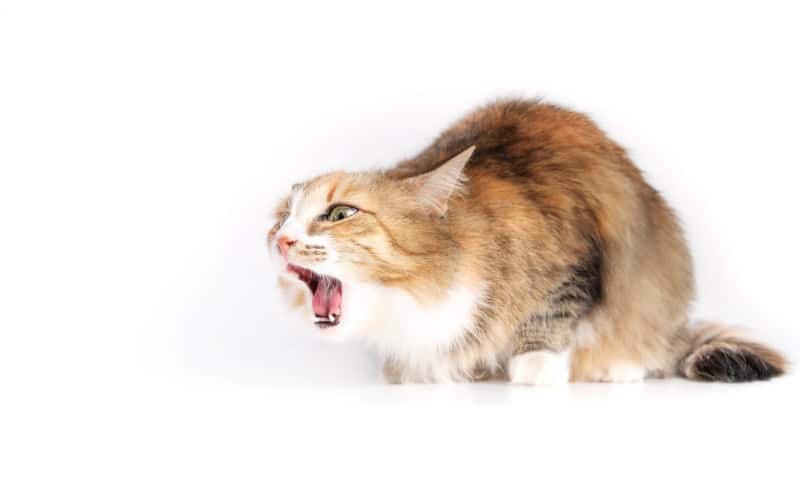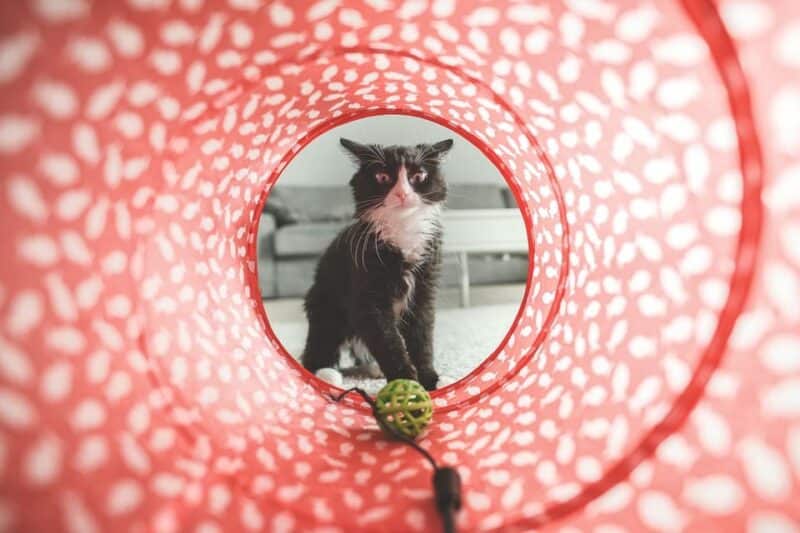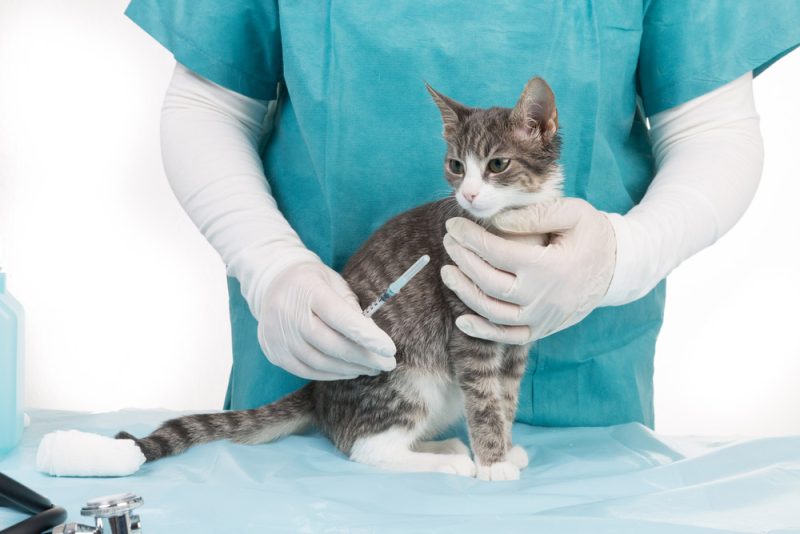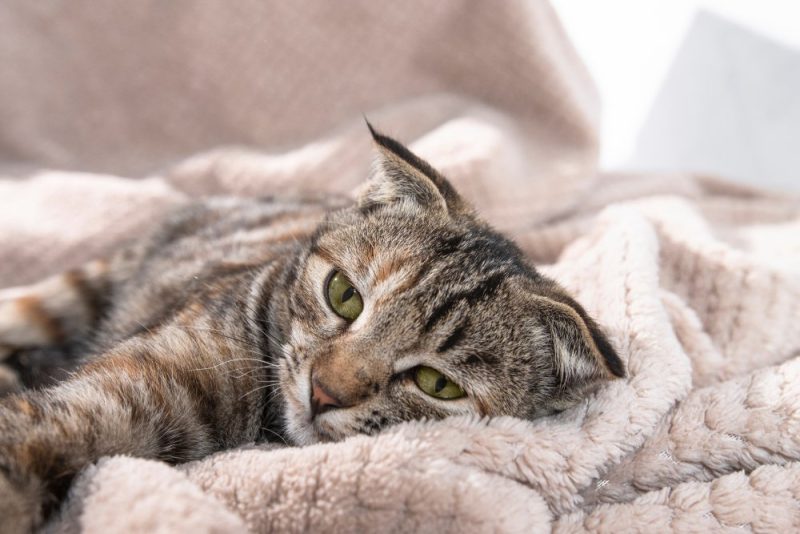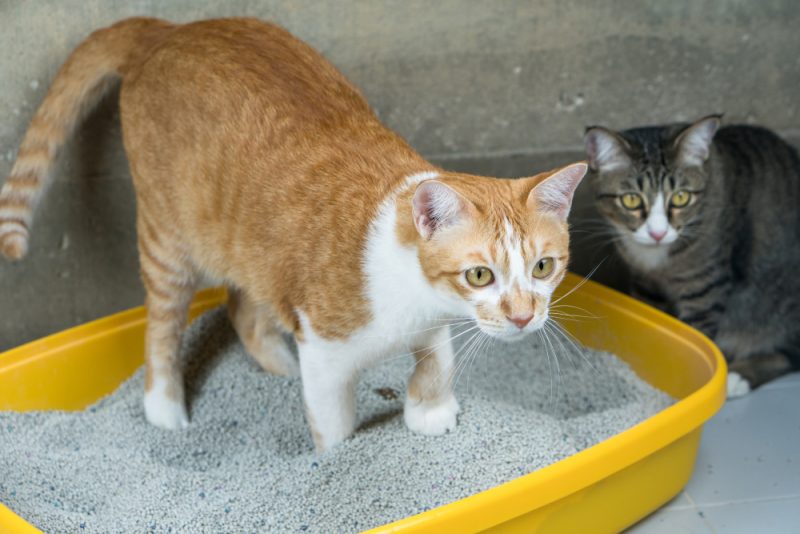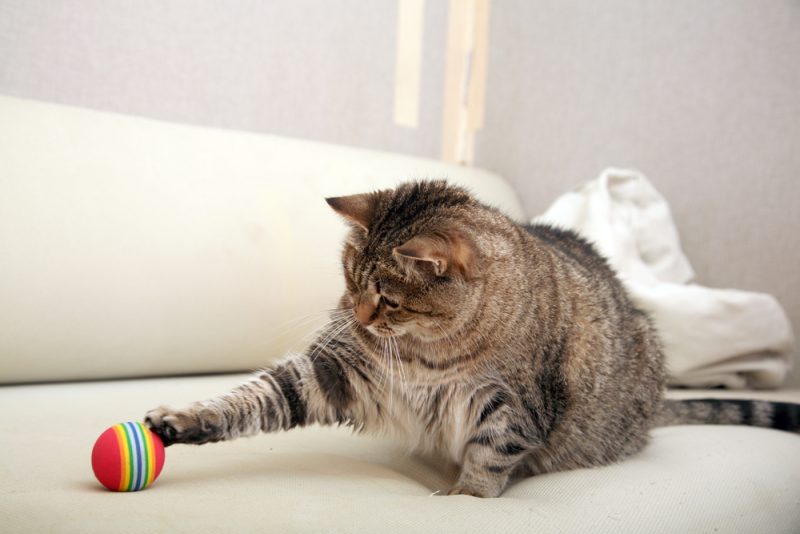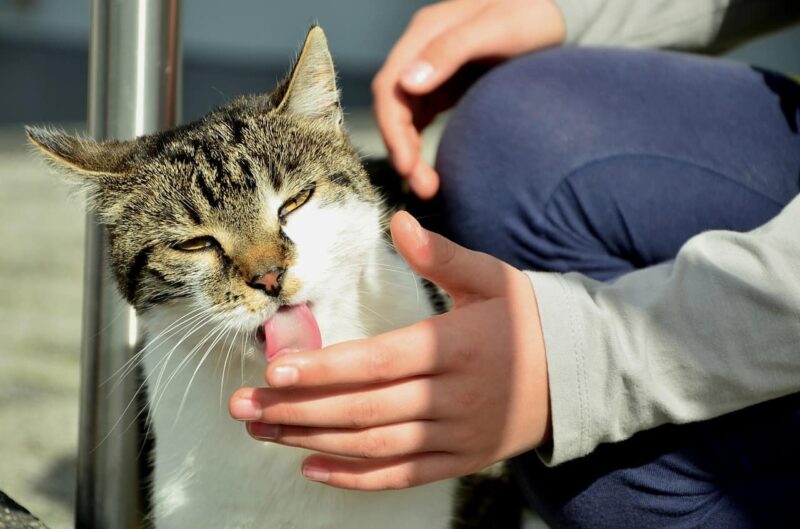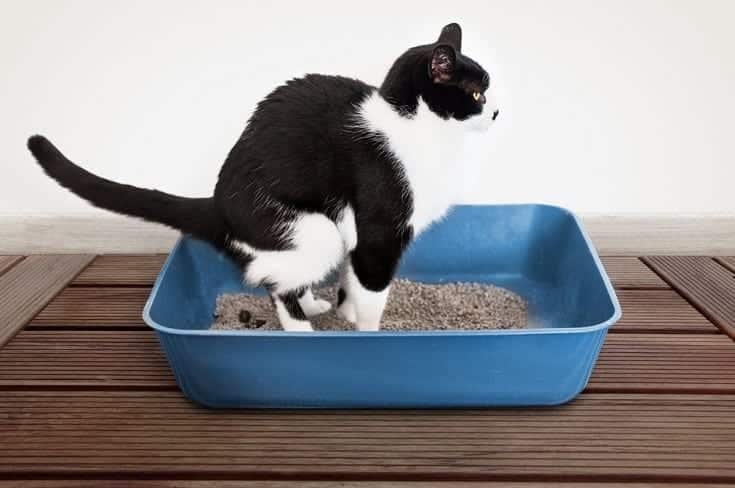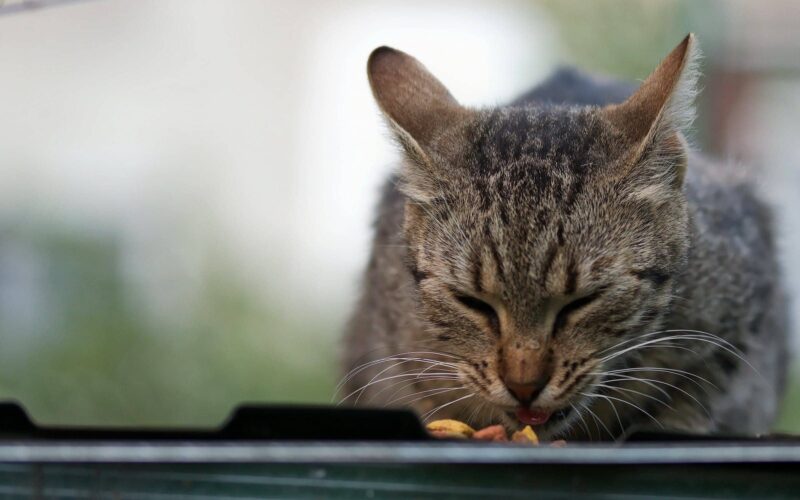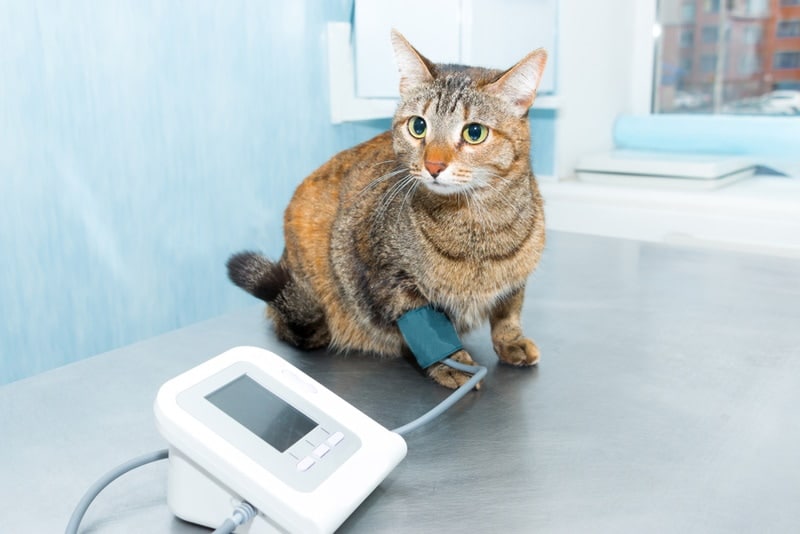If you’re a cat parent, you’ve likely come across your cat hunched over and gagging at some point. Often, this gagging will be caused by a hairball, but cats gag for a few reasons. This gagging is because of a cat’s gag reflex.
Not only do cats have a gag reflex, but it’s fairly similar to ours. Here’s a closer look at how the feline gag reflex works and some answers to a couple of frequently asked questions pet owners have about their cats’ gagging. Keep reading to learn more!

Do Cats Have a Gag Reflex?
As we stated previously, cats do have a gag reflex. Gagging is a natural function of a feline’s body and results from your pet needing to get rid of something in their throat. When the gag reflex is triggered and your kitty gags, it can be productive or nonproductive (like with coughs); productive means whatever is in there comes out, while nonproductive means it gets swallowed again.
When a cat gags, it can sometimes look like they’re about to vomit or even sound similar to a cough, but this bodily function isn’t the same as vomiting, coughing, or even sneezing. However, a cat doing one of those things can end up gagging due to the throat being exposed to fluids from vomiting, coughing, or sneezing.

The Science Behind a Cat’s Gag Reflex
The gag reflex of a cat involves several parts of their anatomy, so the process is a bit complex. The first thing that happens is the gag reflex getting triggered, which occurs when the pharynx (or area of the throat connecting the respiratory and digestive systems) is stimulated. The pharynx is stimulated when something is touching the back of the throat, like hair or fluid; this is where air passes through.
The pharynx is easily stimulated because it’s lined with many sensory neurons. These neurons can detect when something goes into the kitty’s mouth or the pharynx. When something is detected, these neurons shoot a message to the brain to get the gag reflex going. The gag reflex itself is simply rapid muscle contractions that move whatever is where it shouldn’t be out of the cat’s mouth.
Should I Be Concerned About My Cat’s Gagging?
For the most part, a cat gagging is often no big deal. However, this isn’t always the case.
If your cat is gagging constantly or you’ve seen them gagging a time or two daily for several days, there could be something more serious going on. Felines who gag often or for long periods might have an underlying medical problem, so if you see your pet doing this, you should speak with your vet to determine whether there is a potential health issue.
You should also plan a vet visit if you see signs of illness, along with gagging. Gagging can be a sign of anything from digestive issues to respiratory infections, so if the cat is also eating less, vomiting, more tired than usual, or having difficulty breathing, you should get them to a vet for care immediately.
If you need to speak with a vet but can't get to one, head over to PangoVet. It's an online service where you can talk to a vet online and get the advice you need for your pet — all at an affordable price!


Conclusion
Cats have gag reflexes just like we do, and how their gag reflex works is similar to ours. There are quite a few elements involved in how the cat’s gag reflex works—the pharynx, the vagus nerve, sensory neurons, the brain—and there are a few minor differences between their gag reflex and a human’s. For the most part, a cat gagging won’t be anything to worry about, but if they’re gagging a lot or the gagging is accompanied by lethargy or vomiting, there may be cause for concern. In the majority of cases, though, your pet is simply dealing with a hairball or fluid in the throat!
Featured Image Credit: sophiecat, Shutterstock
